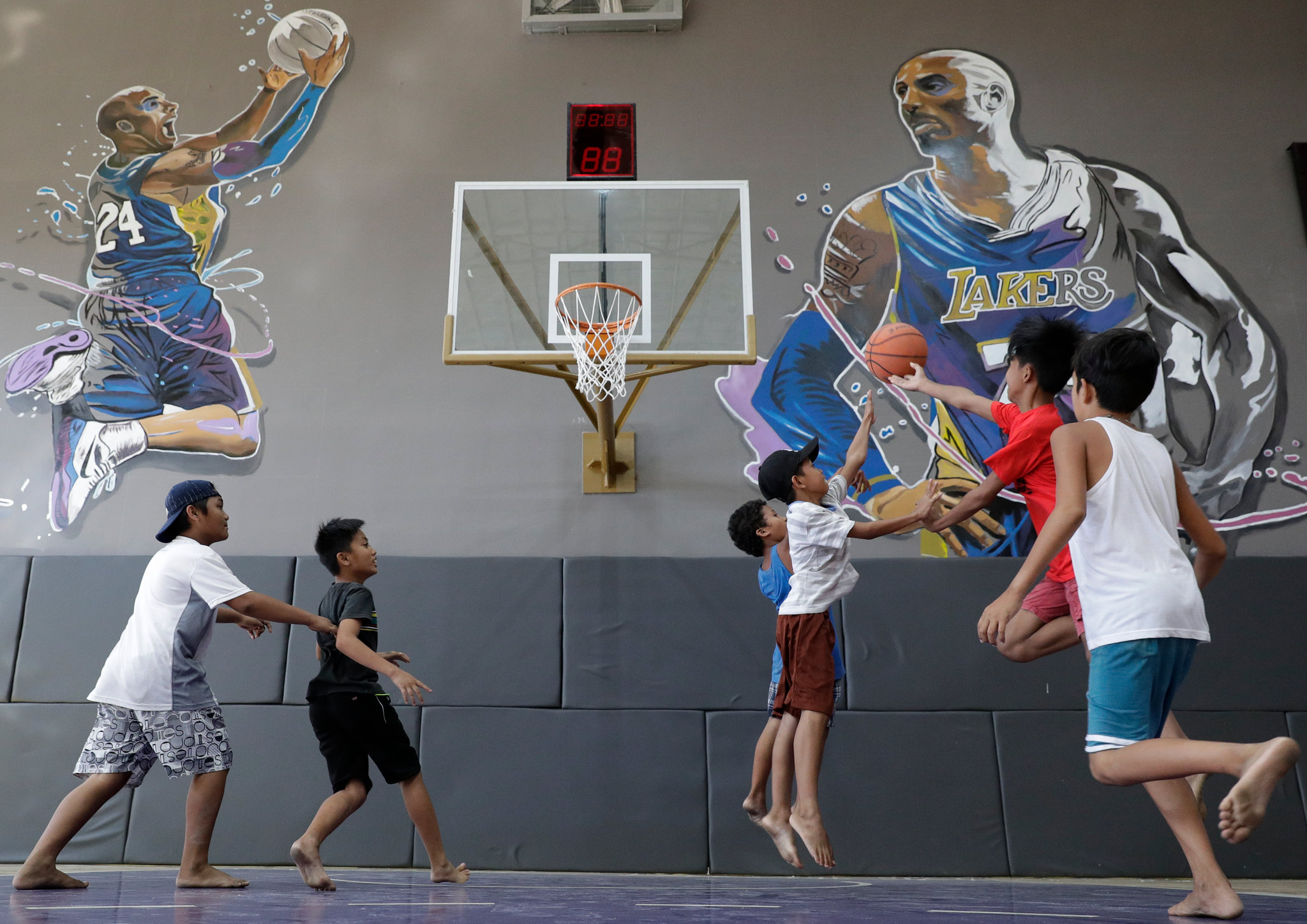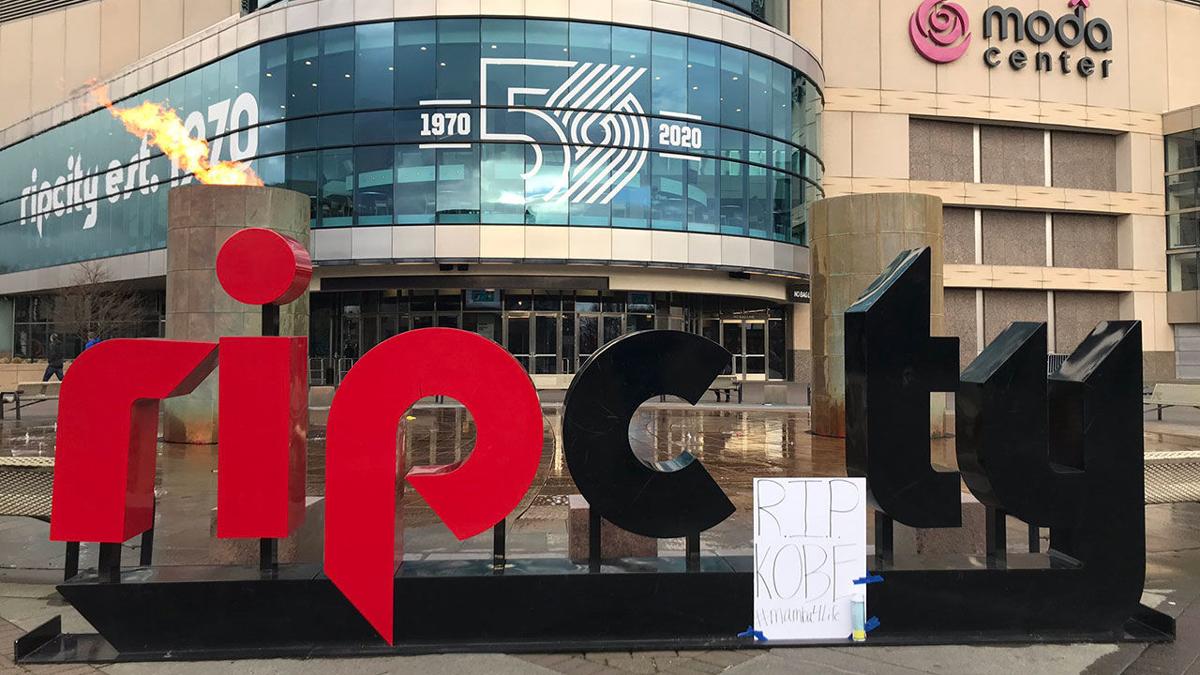
Once in a lifetime, an event so tragic and shocking comes along that it rips the world of sports asunder.
And then in a flash of light, it transcends sports altogether and rends the entire world in two. The significance of it all becomes instantaneously obvious. The rest of us are left standing here like fools, two pieces of torn fabric in our hands, wondering if they will ever be put back together; sadly, we know that they will not.
Such a thing happened this week with the passing of Kobe Bryant and his daughter Gianna, along with the seven other people by their side.
Words fail us. Assemble them in whichever combination you like. They won’t add up. They don’t contain the capacity to encompass the grief that we feel.
The hardest part, for us, is how unprepared we were for this. We did not, could not know, how badly we didn’t want it to end like this. Not in this manner. Not at this time. Any other sequence of events would have been seemingly easier to process. It’s a bloody, senseless debacle that serves no purpose other than to show us the greatness that was among us.
Who was Kobe?
The answer is quite simple: He was one of the greatest basketball players of all time. It was his smooth moves. The ostensible ease of his shot. The magnitude of his ability to take over an entire game, an entire series. Scoring 60, sometimes 80 points in a game. His little championship ring collection, which filled every finger on one hand.
And, yes, it was the other things. His damn smile. The quiet force of his nature. They came to define the game for a generation of players, professional and amateur alike.
His life did not follow the stereotypical trajectory of an NBA star. Kobe grew up mostly in Europe, the son of a professional basketball player father. He played soccer and spoke Italian as a boy.
Returning to the States to play high school basketball in Philadelphia, Kobe immediately lit the world on fire with his athletic feats on the pinewood. Then he opted to skip playing college basketball altogether and headed straight to the NBA. The phrase “one and done” didn’t even apply; Kobe was a none and done.
Kobe was drafted and played his entire career with the Los Angeles Lakers. Shaq eventually teamed up with him and the two won championship after championship, forming a kind of thunder-and-lightning duo. Kobe existed in that crepuscular period between the heydays of Michael Jordan and Lebron James. Often lost in the endless debate about which of those two was the better player, Kobe occupied a liminal, third-rail kind of space.
He was not without his criticisms. To some, he did not fulfill the (inappropriate) expectation of what an NBA player should be. They aren’t supposed to grow up in Europe. They aren’t supposed to be fluent in foreign languages or play games like soccer. They aren’t supposed to speak eloquently or have interests other than basketball.
That may be the greatest thing you can say about Kobe. He was his own, iconoclastic person.
The far more legitimate criticism was that Kobe was guilty of rape. The 2003 case, settled out of court, is a dark cloud that follows his reputation around like a shadow. There are some that want us to “cancel” Kobe completely, as though that transgression erases everything else that we know about his life. But honest assessments about people are almost never that simple. As the old saying goes, show me a saint without a past or a sinner without a future.
And what a future he had. Off the court, after his retirement from basketball, Kobe pursued business and artistic interests. In 2018, Kobe won an Academy Award for an animated short film (“Dear Basketball”) that served as a paean to the game. It was inspired in part by Kobe’s love of Beethoven. It is the juxtaposition of those disparate pastimes that made Kobe so special.
Lastly, we knew Kobe as a consummate family man. Father of four daughters, including, most tragically, his thirteen-year-old daughter Gianna, who also perished in the helicopter crash that took his life. It’s never not impossibly sad when a child dies. But when they pass so suddenly, so violently, while at the side of their father and with so much future ahead of them, it becomes even more so.
That they were traveling together to a children’s basketball game when they died is perhaps the only thing apt about their passing—a metaphor so perfect it almost doesn’t seem real. It certainly doesn’t seem fair. Not to us.
From now until forever, on basketball courts around the world, his silhouette and his laugh, along with hers, will stand as indelible sentinels in our collective consciousness. They will never fade or recede for as long as we have this game. Their distinction will never not be with us. It’s easy to say something like “rest in peace.” But just because it’s easy, doesn’t mean that it’s not also wholly appropriate.




